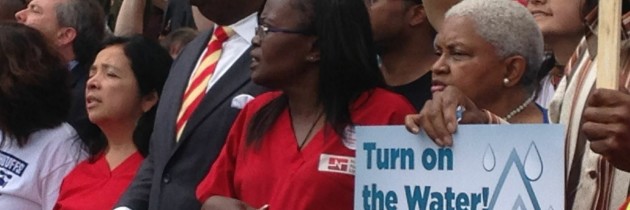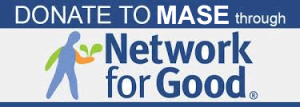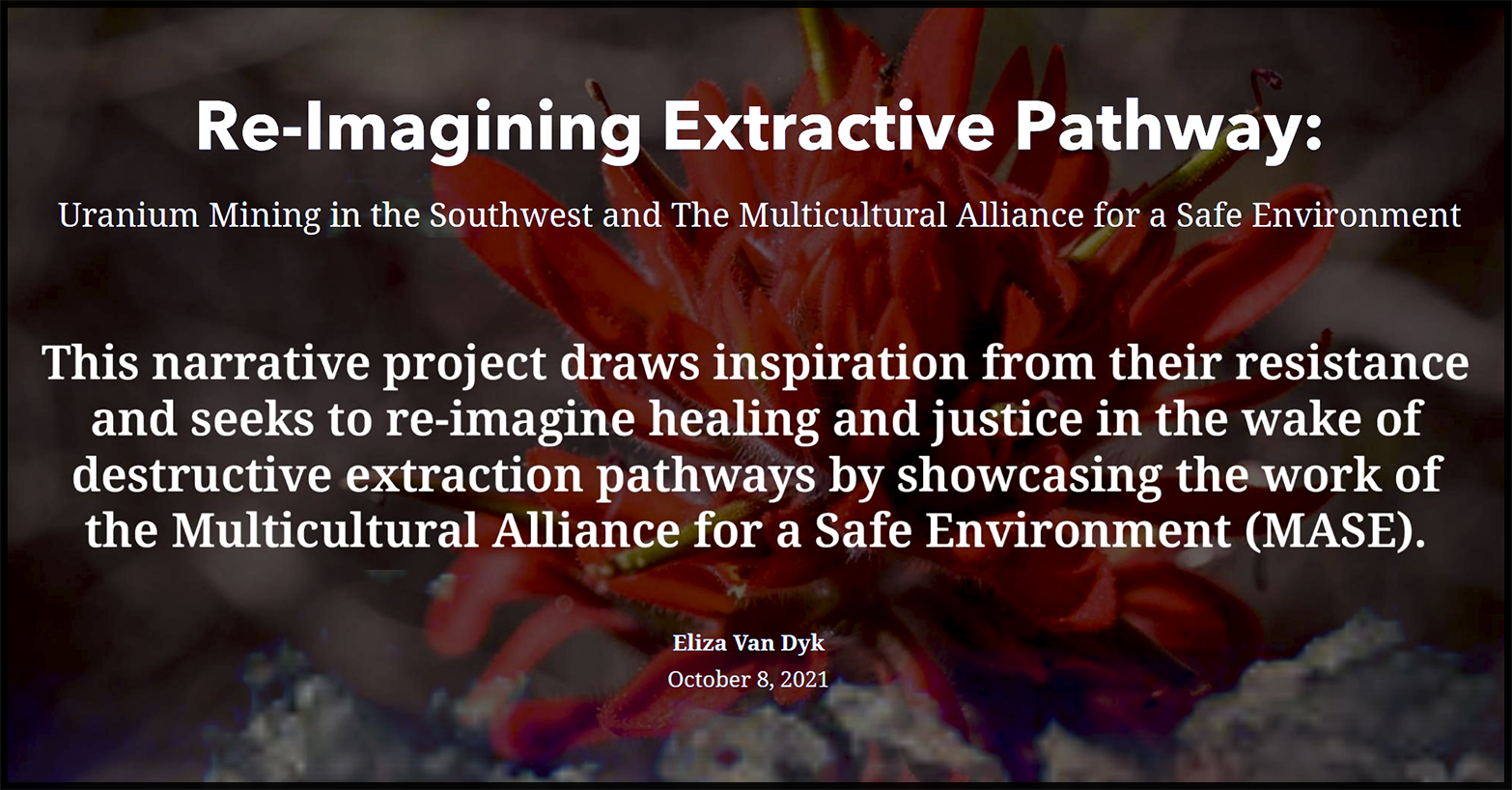Water Affordability Is A New Civil Rights Movement in the United States
The cost of drinking water and sewer services in the United States, rising on average at twice the rate of inflation, is giving birth to a new civil rights movement, one based on access to water and sanitation for the poor.
Stirred by the thousands of Detroiters whose water service was shut off in 2014, local groups have coalesced into a national campaign for affordable water. They seek new policies at the local, state, and federal levels to help the country’s poorest residents maintain basic services during an era of financial tumult.
The movement’s origins are local, led by grassroots activists primarily in the Rust Belt and New England. Dozens more communities around the nation also are involved that are stung by poverty, government mismanagement, or old infrastructure like the Massachusetts Global Action’s Color of Water Project, in Boston; the People’s Water Board, in Detroit; the Michigan Welfare Rights Organization; the Environmental Justice Coalition for Water, in California.
Ability to Pay Going Down
The movement has earned important victories, both in advertising its cause and in changing practices.
On October 23, 2015, the Inter-American Commission on Human Rights, an organization that helps set the human rights agenda in the Americas, held its first-ever hearing on access to water and sanitation in the United States. Representatives from the Color of Water Project, Michigan Welfare Rights Organization, the Baltimore Right to Housing Alliance, the Multicultural Alliance for a Safe Environment, and other groups described unsanitary conditions and people cut off from water.
“We have families, especially children, living and playing among raw sewage,” Catherine Flowers, the executive director of the Alabama Center for Rural Enterprise, and the leading advocate for sanitation in rural Alabama. “This is the starkest form of inequality in this nation, and a blatant violation of the human right to clean water and sanitation.”
The IACHR was intrigued. The commission granted a request for a second hearing, which will be held on April 4.
“It’s on the agenda because the IACHR wants to hear more about it,” Maria Isabel Rivero, IACHR spokeswoman, told Circle of Blue.
You can read the full article about Water Affordability is a New Civil Rights Movement in the US






